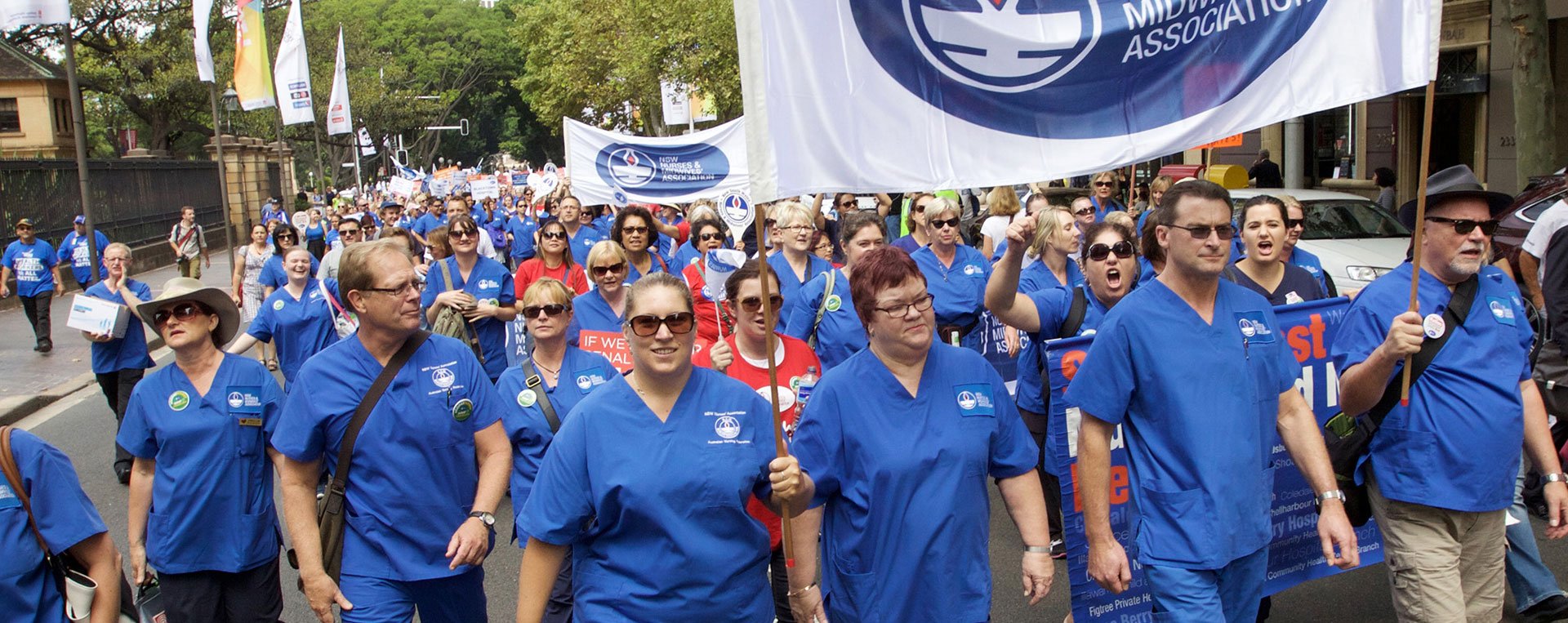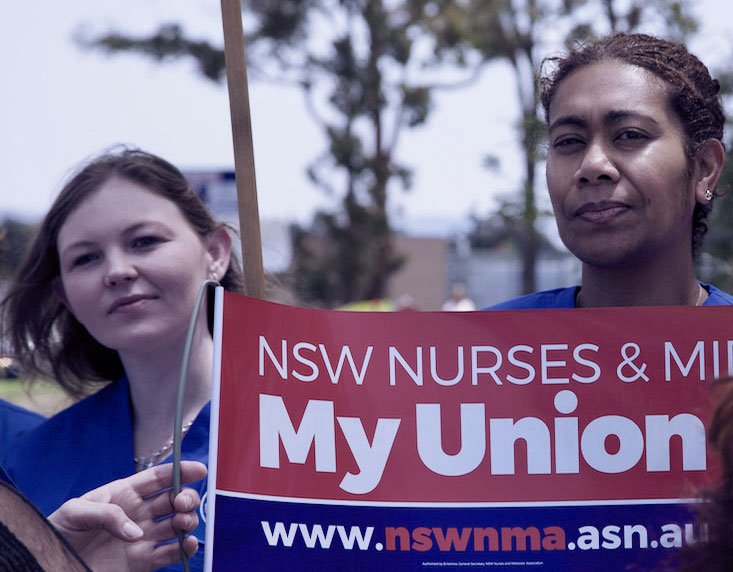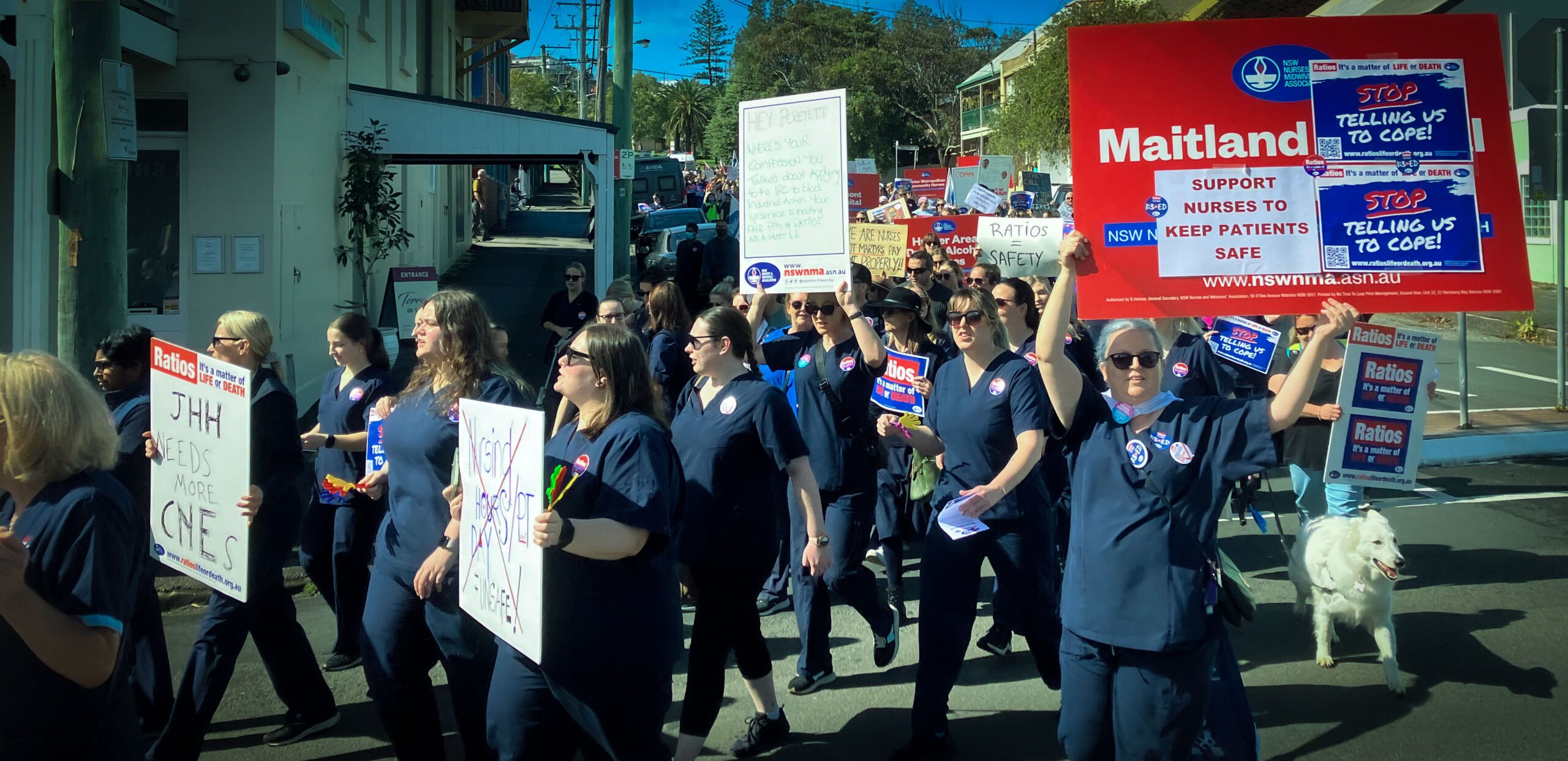Thousands of nurses and midwives from more than 150 public hospitals and health services will strike statewide next Tuesday 15 February, over the NSW government’s failure to introduce nurse-to-patient ratios on every shift.
Over the past week, 99 per cent of the NSW Nurses and Midwives’ Association (NSWNMA) branches who voted were in favour of strike action and called on the NSW Premier to urgently implement shift by shift nursing and midwifery staffing for safe patient care.
NSWNMA General Secretary, Brett Holmes, said the strike was a culmination of ten years’ inaction by the government and its refusal to negotiate with nurses and midwives to secure safe staffing on each shift in every hospital.
“Our members have overwhelmingly indicated how fed up they are with the NSW government for continuing to ignore the need for nurse-to-patient ratios on every shift across our public health system, similar to those already working successfully in Queensland and Victoria,” said Mr Holmes.
“Nurses and midwives across NSW have had to fight to be safe at work during the current pandemic. Fit testing, workers’ compensation and leave entitlements have been a constant battle under this government.
“Each peak of this pandemic has demanded more from our members and put them under considerable strain. Working conditions have deteriorated as staff vacancies increased, scope of practice has been diluted, admissions have skyrocketed, and untrained staff have been introduced into care models. All of this impacted the level of care they can provide to patients.
“COVID-19 has exacerbated the failings of our health system and highlighted the disrespect shown to nurses and midwives by this government. The platitudes will not be enough to sustain our already fatigued and diminished health workforce.”
In addition to their request for nurse-to-patient ratios in every hospital, Mr Holmes confirmed NSWNMA members were seeking:
- a fair pay rise above 2.5%, for recognition of nurses and midwives’ workloads during the pandemic and to compensate for their wage freeze in 2020. A COVID-19 allowance would be additional recognition but does not replace other demands.
- withdrawal of the amendment to the Workers’ Compensation Act that would force workers to prove they contracted COVID-19 at work.
NSWNMA Assistant General Secretary, Shaye Candish, said Tuesday’s action was a pivotal moment for nurses and midwives statewide because many had reached the end of their good will.
“Our members are done with being told to just keep going. They have gone above and beyond to sacrifice themselves, particularly over the past two years, but this issue goes further to securing the future of our state’s nursing and midwifery workforce,” said Ms Candish.
“Nurse-to-patient ratios and safer midwifery staffing would drastically improve the level of patient care our members can provide and must be introduced across the state.
“Our members do not take industrial action lightly. They want to deliver high quality care to the patients of NSW, but the government’s refusal to listen has placed our members in an impossible situation. So far, the government hasn’t given them a thing except pats on the back.”
Tuesday’s strike action will be staggered across the morning, with some nurses and midwives walking off the job for up to 24 hours. During the strike, life-preserving services will be maintained in all public hospitals and health services (a list of participating branches and times is available here).
As part of the strike action, NSWNMA members will march down Macquarie Street ahead of a COVID-safe rally outside Parliament House from 10am next Tuesday.
In conjunction, major regional rallies will occur in Bathurst, Bega, Coffs Harbour, Lismore, Newcastle and Tamworth. While further rallies will also take place outside local hospitals or health services, parks or state MP’s offices (further details of rallies will be provided before Tuesday).
The NSWNMA reiterated its ongoing willingness to hold discussions with the NSW Premier and has not ruled out further actions over the coming months.








